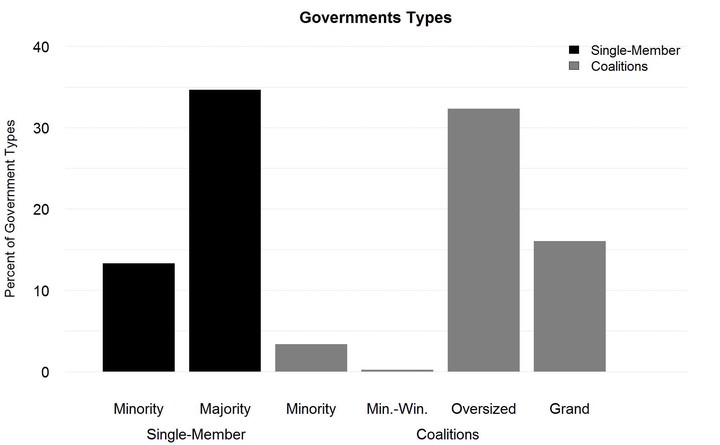 Government types in ethnically divided societies, 1946-2009.
Government types in ethnically divided societies, 1946-2009.
Abstract
Why do ethnically diverse elites share power in government coalitions? I argue that uncertainty about their societal support makes ethnic leaders frequently form oversized coalitions when their group does not represent an overwhelming majority. This uncertainty stems from crosscutting cleavage configurations, which enable coethnics to hold membership in multiple groups, and opens up the possibility of future defection to the opposition along shared identity markers. In response, elites prefer coalitions that internalize crosscutting cleavages, as they restrict defections to coalition partners and survive longer. To test these hypotheses, I collected new data on linguistic, religious, and racial intragroup divisions. Using conditional choice models on formation opportunities in 134 ethnically divided societies between 1946 and 2009, I find that, independent of institutional rules, ethnic elites frequently opt for oversized multiethnic coalitions that share as many ethnic markers as possible. These coalitions survive longer than more heterogeneous pacts.